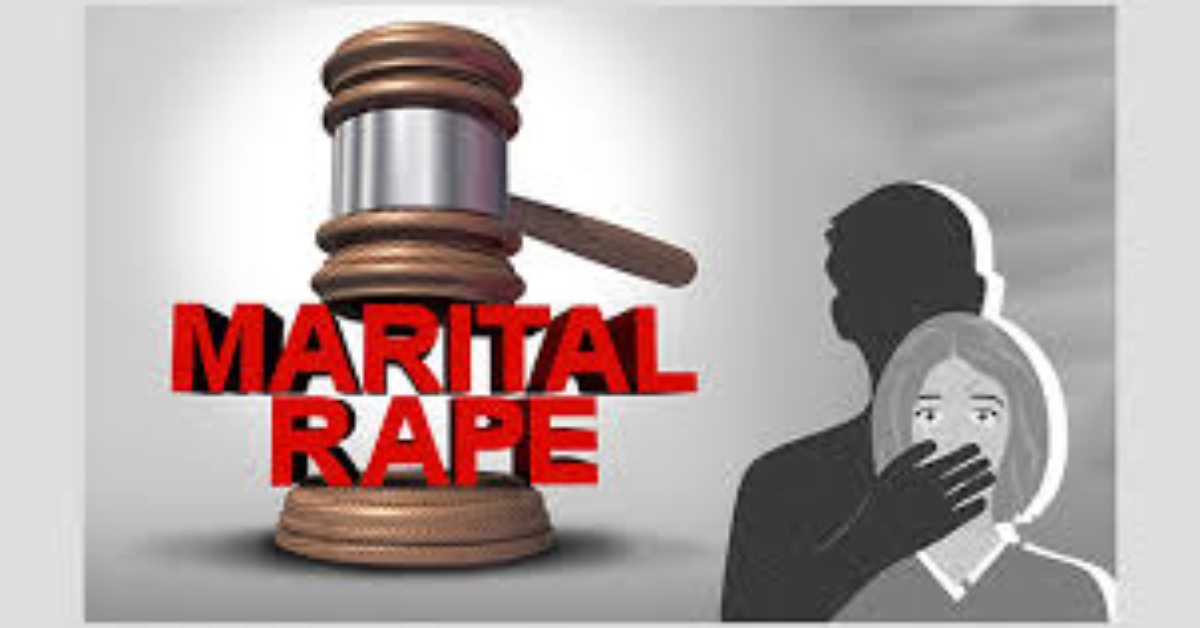Marital rape, or the non-consensual sexual intercourse between married partners, is a contentious issue in India. Unlike many countries where marital rape is recognized as a crime, Indian law still provides immunity to husbands under Section 375 of the Indian Penal Code (IPC). While debates continue regarding its criminalization, advocates for legal reform argue that consent should be the cornerstone of all sexual relationships, irrespective of marital status. This blog explores the complexities surrounding marital rape in India, the legal framework, societal perspectives, and the ongoing battle for justice.
Legal Status of Marital Rape in India
Currently, Indian law does not recognize marital rape as a criminal offense. According to Section 375 of the IPC, rape is defined as sexual intercourse with a woman against her will or without her consent, but an exception is made for husbands. This exception states that forced intercourse by a husband with his wife, provided she is above 18 years of age, is not considered rape. This legal loophole has led to widespread criticism from human rights activists and legal experts.
Judicial Stance and Key Cases
Over the years, Indian courts have seen multiple petitions seeking the criminalization of marital rape. Some landmark cases include:
- Independent Thought v. Union of India (2017) – The Supreme Court ruled that sexual intercourse with a minor wife (below 18 years) would be considered rape, striking down a part of the exception clause.
- RIT Foundation v. Union of India (2022) – This case challenged the marital rape exception, with petitioners arguing that the exception violates women’s fundamental rights.
Despite judicial debates, marital rape remains decriminalized in India, reflecting the legal system’s struggle to balance tradition with progressive human rights.
Arguments For Criminalizing Marital Rape
- Violation of Women’s Fundamental Rights
Marital rape infringes upon a woman’s right to bodily autonomy, dignity, and equality under Articles 14, 19, and 21 of the Indian Constitution. - International Human Rights Obligations
India has signed multiple international treaties, such as the Convention on the Elimination of All Forms of Discrimination Against Women (CEDAW), which recommend criminalizing marital rape. - Misuse of Marriage as a Defense
Marriage should not be a license to override consent. Consent remains crucial in all sexual relationships, and forced intercourse should not be legally protected. - Psychological and Physical Trauma
Survivors of marital rape often suffer severe mental and physical abuse, yet they have no legal recourse under current laws.
Arguments Against Criminalization
- Preservation of Family and Marriage
Some argue that criminalizing marital rape could lead to misuse of the law and destabilize marriages. - Alternative Legal Remedies
Existing provisions such as domestic violence laws under the Protection of Women from Domestic Violence Act (PWDVA), 2005 provide some relief, although they do not directly criminalize marital rape. - Cultural and Religious Sensitivities
Conservative viewpoints hold that Indian traditions consider marriage a sacred bond, making marital rape laws incompatible with traditional family structures.
The Road Ahead: Possible Legal Reforms
To address this pressing issue, the Indian government and judiciary can consider the following measures:
- Amend Section 375 of IPC to remove the exception for marital rape.
- Create a separate offense under the law to criminalize non-consensual sex in marriage.
- Strengthen domestic violence laws to include explicit provisions against sexual violence within marriage.
- Raise awareness through education campaigns to change societal attitudes towards marital rape.
Conclusion
The debate over the legal recognition of marital rape in India is far from over. While cultural and legal roadblocks exist, the movement for change is gaining momentum. Recognizing marital rape as a crime would be a significant step toward ensuring gender justice, equality, and the protection of women’s rights in India.

